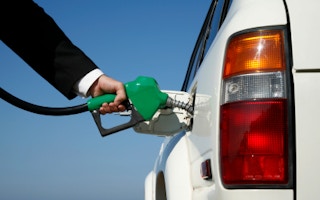Up to 750,000 drivers in NSW will be forced to pay at least $150 more for petrol each year when the government bans regular unleaded petrol in July.
NSW is the only government in Australia to ban regular unleaded petrol and replace it with fuel blended with 10 per cent ethanol.
But modelling by the University of Queensland and the Victorian Automobile Chamber of Commerce obtained by the Herald shows 25 per cent of NSW cars cannot use ethanol fuel and will be forced to use premium fuel instead.
With support from the Liberal and National parties, the former Labor government passed legislation in 2007 banning unleaded fuel, arguing that ethanol-blended fuel was better for the environment.
The Coalition supported the laws despite the fact that among those bearing the extra cost would be nearly 100,000 NSW motorists who drive cars made before 1986, many of whom live in rural Australia.
Almost all motorcyclists in NSW and drivers of several popular makes and models, such as all Ford Lasers and many Mazdas made before 2005, will also have to pay more as their vehicles cannot run on ethanol-blended petrol.
Anton le Rutte, of the Boat Owners Association of NSW, said most boats would also be unable to use ethanol fuel because it absorbed moisture and disintegrated and had a risk of starting fires in older boats.
At an average extra of 10¢ a litre for premium fuel, the average motorist will be paying $150 more a year. For a car with a 60-litre fuel tank, filling up once a week, it will cost an extra $300 a year.
The study was prepared for the ethanol industry. It used data from 2009 to project that, as of last year, only 75 per cent of 3 million passenger vehicles and motorbikes in NSW would be able to run on ethanol-blended fuel.
The extra cost to be borne by motorists was scarcely mentioned in the parliamentary debate on the legislation.
Tony Kelly, then the minister for rural affairs, said motorists who had to switch to premium unleaded would ”enjoy a higher-octane, cleaner-burning fuel”.
Andrew Stoner, the Deputy Premier, supported the legislation, despite airing industry concerns that some motorists would have to pay 12¢ a litre more for ”nothing other than government policy”.
The Energy Minister, Chris Hartcher, did not respond to questions about whether he was concerned about the extra costs motorists would face or whether he had considered policies to offset them.
Kathleen Cash, a graphic designer from Rosebery, was totally unaware that regular unleaded petrol was being phased out and that she would have to pay more for premium fuel.
Ms Cash is thinking about trading in her 1998 Daewoo, which cannot run on ethanol-blended fuel, but her son looks likely to inherit it.
”I don’t really understand why it’s going to cost more for older cars,” she said.
”I think it’s really unfair that people who have older cars have to pay more”.










